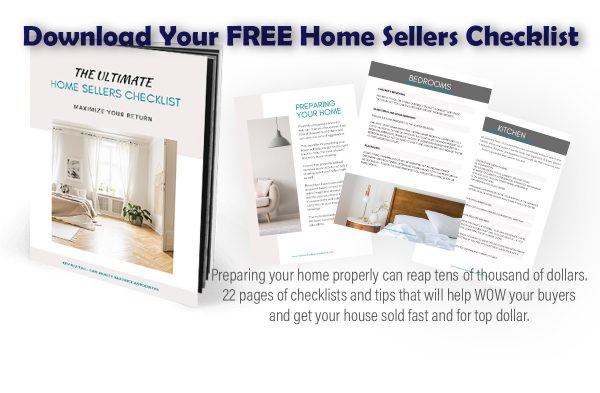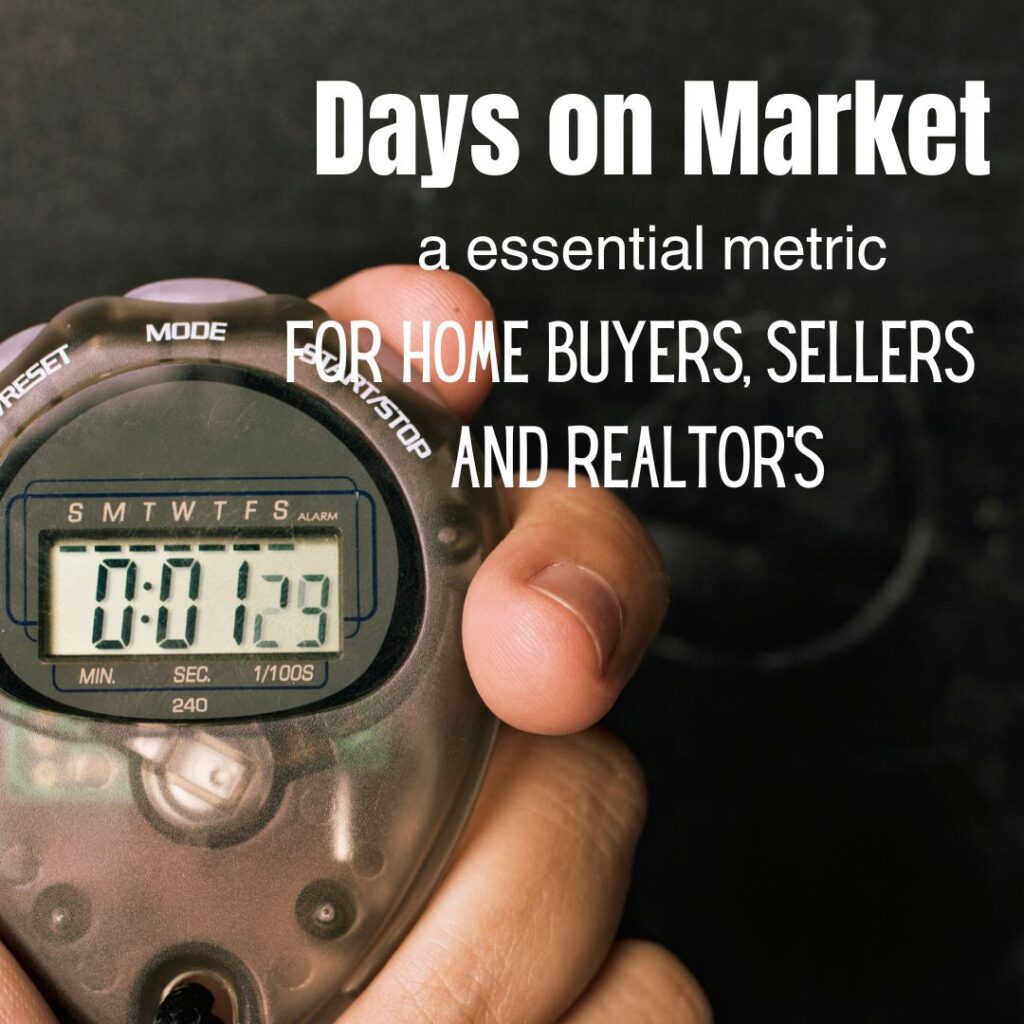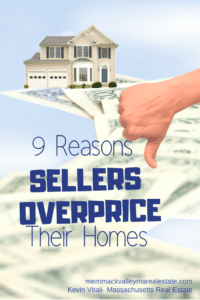
One of the primary reasons for overpricing is emotional pricing, where homeowners assign a value to their property based on personal experiences and memories. This emotional connection often leads to resistance in following an agent’s pricing recommendations, resulting in a home being priced higher than the market can bear. Overpricing not only limits the pool of potential buyers but also causes the home to linger on the market, creating a negative perception among buyers. Sellers need to take a step back from their emotions and approach the pricing process with logic and data.
Another common mistake is pricing based on need, such as a seller’s desire to fund their next home or cover moving expenses. However, pricing a home above its market value to meet personal financial needs can backfire, as buyers are unlikely to pay more than what the home is worth. Additionally, relying on inaccurate online estimates, such as those from Zillow, can further mislead sellers into setting an inflated price. Online tools often fail to account for the nuances of location, condition, and market fluctuations, making them an unreliable source for pricing decisions.
Jump To A Section....
9 Reasons Why Sellers Overprice Their Homes
Often behind every overpriced home is nostalgia or not listening to your top, local real estate expert and listening to everyone else. All two often home sellers will listen to neighbors, friends and family when valuing their home. They don’t have their hand in the market on a daily basis.
Additionally if they own a home they have a vested interest in making sure your home sells for the highest price possible, whether it is inflated or not. It validates the price they have in their mind for their own home.
This leads to to poor decision making regarding what the true value of your home would be in the market. It can cloud your judgement.
1- Emotion Based Pricing
You love your home. It served you perfectly while raising your family, but it is time to move on. You have created great memories here and have lovingly improved your home to suit your needs.
When the emotions run high it overtakes logic. Being emotional about your home can lead to trouble in many ways. Being highly emotional about your home will make you ignore your agents advice not only about preparing your home properly but also about pricing your home properly.
You love how your home looks and you have memories but will refuse to prepare your home for today’s buyers. Emotion will also make you place a value on factors that have little or no value to the home buyers coming through your home.
Many of the other reasons given below can in large part be because of emotions. It is important to keep your emotions in check and take a logical approach to selling your home.
2- Pricing Because of Need
Of course, you need a certain amount of money to make your next move viable. You need a down payment, you need money for closing costs, you need money for a mover, etc… But do not expect to price your home on need alone.
Yes, you do need to net a certain amount of money out of your home sale to make it work. But overpricing your house just because you need more money for your next home is not going to fly with home buyers. You need to price your home accordingly to appeal to a broad range of buyers as well as have your home stand out among the competition.
3- Zillow Says It is Worth This Much
Funny how when Zillow Zestimate says a home is priced more than an agents calculates the sellers are right there saying that “Zillow says it’s worth more”…. But when the Zillow Zestimate is low no home seller says it is too high, let us lower the price to match Zillow.
Pricing a home can be a fickle thing. While pricing is based on reviewing historical data there is quite amount of subjectivity comparing houses. The computer algorithm cannot make those subjective adjustments based on condition, location, etc… Or even project changes in the real estate market.
It takes a skilled agent to price a property properly based on comparable properties that have sold in the recent past. The only way to price a home with some sort of accuracy is with a comparable market analysis, a broker price opinion, or an appraisal.
The Zillow Zestimate is no way an accurate way to price your home. As a matter of fact, Zillow’s own CEO sold his home for 40% less than the Zillow Zestimate. How accurate is that?
4- No Urgent Need to Sell /Testing the Waters
Putting your house on the market to see if you can get an inflated price is a bad way to go. Yet every year many homeowners will try testing the waters.
The problem in this internet age, home buyers know your home has been on the market and did not sell. That info is at their fingertips.
A home that goes unsold will quickly get stigmatized in this market. There is quite a bit of buyer psychology that goes into buying a home. A home left to stagnate on the market or has gone on and off the market will raise the suspicion of buyers making your home a bad choice. No one else wanted your home, why should they!!
Remember life changes quickly and there may come a time when you may need to sell your house.
5- Room to Negotiate
This is a common reason many sellers want to overprice. They know what their house is worth, but they think leaving room to negotiate will get them to the price they want. Unfortunately leaving negotiating room is a strategy that can backfire.
Overpricing even 3-5% and you can scare buyers away and overpricing 5-10% for sure will deter offers. In today’s market, buyers are willing to pay the asking price. if your home is
worth the asking price you will get it. Because of the internet home buyers are savvier than ever before. They have a good sense of what homes are worth.
But inflating your home’s price for negotiating room and buyers do not even want to get involved in the process of making an offer. As emotional as selling a home is, so is buying. A buyer does not want to get “emotionally involved in a process that they think will not have a positive outcome.
Also leaving room to negotiate can market your home to the wrong buyer’s. Say you list your home at $550,000 and it is truly a $490ish house. Your home will not compete in the 550k price range and many of the true buyers for your home will cut their price search to 500k. They will not even know your house exists.
6- Paying a High List Price
While this is not as prevalent as it was between 2006-2014, pricing your home based on what you paid for the house is not a way to price your home. While you may have paid a fair price in 2006 the fair price for your home in 2010 could have been significantly less than what you paid.
A home’s price is effectively good for one day only. The real estate market goes up and down. You could potentially find yourself buying when prices are high and having to sell when prices are low.
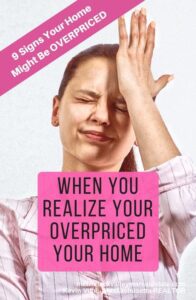
7- Choosing the Wrong Agent
Choosing the wrong agent can definitely derail your home sale. There are many reasons a home seller would choose the wrong real estate agent to sell their home.
One is they go with the listing agent that gives them the highest list price for their home and ignore any data that supports a lower number. We will talk about that more in the next section.
The second common reasons a seller chooses the wrong listing agent is they hire a friend or family member to list their home. Unfortunately, they may not always be the best agent for the job. They could be from out of the area, they could be a part-timer or they can lack the experience to do a proper job.
8- Ignoring Market Conditions
Again, this is one common reason sellers overprice their homes. Ignoring real estate market conditions may not have as much bearing today as it does in a down market. Today, a seller can overprice slightly and be a little aggressive on their pricing. If they missed the market slightly, and with homes appreciating so quickly, the market will catch up in a couple of months.
But failure to pay attention to current real estate market conditions can lead to overpricing quickly in a down market. In a market with home prices declining even a small mistake in overpricing can have disastrous results. You could end up chasing the market down for months with price change after price change.
Realize markets can turn on a dime. If you received a price on your property 6 months ago it can be quite different than today. It is important to re-evaluate pricing monthly.
9- Fear Of Leaving Money On The Table
Underlying many of the reasons a home seller will put their overpriced home on the market is the fear of losing money. They fear underpricing their home and leaving money on the table.
Realize that in some markets listing your home for a higher asking price by even 2-3% can leave your home unsold. Those few percentage points can scare potential buyers away.
Quote
When selling a home, nothing is more vital than pricing your home correctly. The right price will save time and effort. The wrong price has the exact opposite impact. You will help sell the competition. As the time on the market grows, finding a buyer will become more challenging. Eventually, you will be forced to drop your price if you want to sell. Study after study shows that pricing accurately from day one will lead to a higher sale price.
Houses That Start Off Overpriced End Up Selling for Less
Let me reiterate: Overpricing your home will net you less. The chart below shows sold data for Haverhill, MA, over a 10-year period. Here is the relationship between the number of days it took to get an offer and the median selling price versus the percentage it sold for relative to the original list price.
Day to Offer | Median Sale Price | Sale price to Original List Price |
1-10 | $409,900 | 104% |
10-20 | $379,900 | 100% |
20-60 | $350,000 | 98% |
60-100 | $324,000 | 97% |
100+ | $325,000 | 97% |
There is a correlation to how overpricing your home can affect your sale price and the time your house spends on the market. Often, sellers believe better offers will come if they get a good offer early.
But in my experience, your first offers are usually your best offers.
And there is a reason why. The first buyers through the door are your best buyers. They are the buyers who have been out looking for a home for months. They have lost a few homes for several reasons.
They have become thoroughly educated about the market and they are ready. This is the group of buyers who will put in the best offers leaving negotiations to go quickly. As a home sits on the market, the buyers will be new buyers who do not understand the market and have not looked at enough homes.
Eventually, as your home sits on the market, you will attract the bottom feeders, who are only looking to get home if they feel they won by buying your house undervalued.
This Is What Happens When You Insist on Overpricing Your Home
Your listing hits the market, and there may be some initial interest. Showings start off high, just a few showings happen, or none. You get excited for open houses, but attendance does not mean they are qualified to close on your home in 30-60 days.
As time goes on, showings become rare or non-existent. Frustration sets in, and you blame your agent, demanding more open houses and advertising. However, the issue is that buyers are rejecting your home online. If they do not schedule a showing, it is because your home does not match their expectations based on the price.
Now, you have exceeded the average days on market. Your home should not linger unsold without adjustments in price, condition, or marketing. You still believe your home is worth more than it is, but buyers see it differently. Eventually, your listing expires. You are angry, but ultimately, you must price your home according to the market.
“Buyers Can Just Make an Offer”
You are still defending your price, thinking buyers can offer a lower offer. But if your home is overpriced, the right buyers do not see it. Buyers in a higher price range compare your home to better options, and those who can afford it are not interested.
Most homes in Massachusetts sell within 1-3% of the asking price. Buyers and agents will not waste time on overpriced homes. Even if someone is interested, they may hesitate to offer far below asking price, fearing insult or rejection.
Buyers Aren’t Offering on Overpriced Homes for Several Reasons:
Just because you want something to happen a certain way doesn’t mean it will. After almost 24 years in the real estate business, I can tell you that homebuyers are hesitant to put in offers on houses that they believe are priced above market value.
- Buyers are embarrassed to offer far below the asking price.
- Buyers do not want to invest emotionally if they think the deal will not work out due to a pricing gap that needs to be closed.
- Your home is not being marketed to the right buyers. An overpriced house is viewed alongside homes that are of better value.
- After you extend well beyond average market times, your listing develops “market rot,” and buyers wonder what is wrong.
Downsides of Overpricing Your Home
- Your home expires on the market unsold, putting your plans on hold.
- The inconvenience of constantly showing your home as you prepare for each showing and pack up the family to leave the house.
- Frustration builds as time passes and months of showing wear on you.
- Even if you get an offer, your home may not appraise for that amount.
- You are showing your house to the wrong group of buyers. Your home will not compete with home that are priced properly for that price bracket.
- You miss the opportunity for a strong opening where excitement is high for your home and the best buyers will come out to view it.
- Your house becomes stigmatized. Buyers wonder what is wrong with your house because it has not sold.
- You may net less money as buyers take advantage of your frustration.
How to Avoid Overpricing

Price your home at market based on comparable properties that have sold. Sit down with your real estate agent and review past sales of homes in the area with similar criteria:
- Location- Obviously you want your comparable homes to be in the same town. More importantly you want to try and get comps either in the same neighborhood or within one mile of your location. The banks look closely at this in appraisals.
- Square footage- The comps should be no more than 20%- 25% larger or smaller. Meaning if you have a 2000 sq foot home comparable properties should be no more than 1500-2500 square feet. Again, a huge criterion the bank looks at when it comes time for an appraisal.
- When the house sold, comparables need to be no more than 3-6 months old. The homes you are using need to have been sold during that period. Keyword sold. Not listed or expired…. what did someone pay for a home? This is another big criterion for the banks regarding appraisals.
- Room, bedroom and bath count- Ideally the comparables should have the same bedroom, bath and room count or at least very close.
- Style- You should try and compare colonials to colonials, capes to capes, and ranches to ranches, etc… some certain expectations and features go along with a style. Here in New England, a colonial usually performs best price-wise. I quickly reviewed styles in Andover, Massachusetts, with a good mix of home styles. I compared homes that were from 1500-2500 sq feet. Colonials had an average sale price of $538k, capes were at $515,000 and ranches were at $499,000.
- Age—Age varies slightly depending on renovations. It is hard to compare a 1900 colonial to a 2005 colonial in the same size range. However, some older homes have been completely renovated to function like newer homes, and you must pay attention to that.
- Condition—Condition can play a huge factor. Your neighbor has the same home as you, but they spent 100k updating a kitchen and three bathrooms within the past year, while yours is still from the ’60s. Buyers will pay for a similar home that needs no updating.
- Features and Amenities—Features and amenities like a Master suite with a master bath, central air, patios, decks, finished basements, etc., can affect the value of your house.
This is a rough guideline for using comparable homes, with the first three items being the biggies. Homes can be unique, some more than others. Your agent should have a good handle on all that goes into pricing your home for your area. They should be able to explain pricing concepts and the local real estate market to you.
The banks have strict guidelines for the comparable homes’ location, square footage, and age. If an appraiser goes outside of the guidelines, they need an excellent explanation. So should your agent.
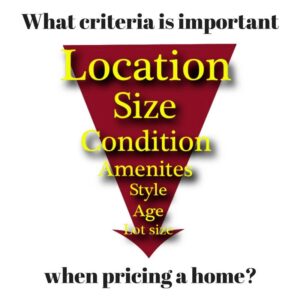
FAQs
What does it mean to overprice a house?
How does overpricing affect the selling process?
Can I lower the price later if my home doesn’t sell?
Can an overpriced home negatively affect future sales?
What are the alternatives to overpricing if I want a higher return?
Conclusion
Getting the right price on your home is the most essential aspect of a successful home sale. No amount of marketing or time will get a home sold.
Not only will proper pricing help you get your home sold for the most amount of money, it will reduce stress and frustration and reduce the amount of time that you will be inconvenienced.
Overpricing a home is not a great pricing strategy. Work with your REALTOR to et the perfect price out of the gate.

Author Bio
Kevin Vitali is a Massachusetts REALTOR out of Haverhill MA that serves Essex County and Northern Middlesex County in Massachusetts. If you want to buy or sell a home, let me use my years of experience to get you the best possible outcome.
Feel free to contact me to discuss any upcoming moves. I am always happy to answer your questions
Call 978-360-0422 Email kevin@kevinvitali.com

